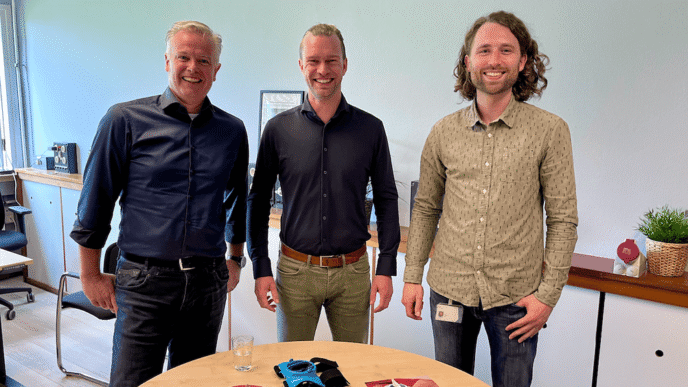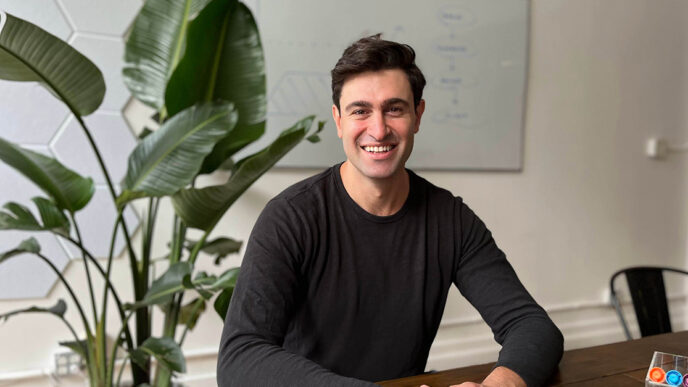Emm is stepping into the spotlight with a bold idea that began during the quiet days of the COVID lockdown. Founder Jenny Button was using wearables like the Oura ring and the Whoop band, and while they offered a detailed window into her health, she noticed a major gap. These devices tracked sleep, stress, and activity with ease, yet none could explain something far more central to everyday life for millions of women. That gap eventually led her to imagine the need for a smart menstrual cup, a device that could finally bring real data to menstrual and reproductive health.
That realization pushed her to ask a simple question with big implications. If we rely on wearables for almost everything, why hasn’t anyone built something that helps women understand their cycles with the same level of precision? Button sent a letter to an engineer at Dyson, made the right connection, and soon started experimenting with early concepts.
Five years later, after thousands of prototypes and long rounds of user testing, Emm has unveiled what it calls one of the world’s first smart menstrual cups. And investors are taking notice. The UK startup just raised $9 million (£6.8 million) in seed funding, led by Lunar Ventures, as it gears up for a full product launch next year.
At first glance, Emm works like a traditional menstrual cup. It’s made from medical-grade silicone and designed to collect period blood instead of absorbing it. But inside the cup lies something far more advanced, ultra-thin sensors that capture real-world biological data. These sensors are designed to help users track patterns in their cycles, spot irregularities, and gain insights that have long been overlooked.
Jenny Button believes this technology could change how both consumers and clinicians approach reproductive health. She points to widespread conditions like endometriosis, which affects one in ten women and often takes seven to ten years to diagnose.
This diagnostic delay, she said, comes largely from a lack of objective, continuous menstrual data. Clinical settings seldom analyze menstrual blood, even though femtech founders and researchers have described it as an “untapped opportunity” that could reveal markers traditional blood tests can’t.
Beyond endometriosis, a third of women face serious reproductive health issues at some point in their lives. Emm hopes to close that data gap by turning a familiar product into a discreet medical tool.
The companion app stores information securely, using encryption, two-factor authentication, and identity protection. Button emphasized that all user data is anonymized or pseudonymized and can only be accessed by staff who genuinely need it.
Button called the new funding “strategic,” explaining that she sourced her lead investor through her network. Other participants in the round include Alumni Ventures (known for backing Oura),
The Labcorp Venture Fund, and BlueLion Global. The fresh capital will support Emm’s launch into the UK market in 2026, where anticipation is already building. The company’s waitlist has surpassed 30,000 pre-orders and continues to grow.
A portion of the funding will also fuel ongoing R&D, as Emm prepares for a U.S. expansion planned for early 2027.
But Button says this is only the beginning. Menstrual health may be Emm’s entry point, yet she envisions a much broader platform. Over time, she hopes the technology will evolve into diagnostic tools, digital health services, and even new therapeutic options, turning Emm into a full ecosystem for women’s health.
Her mission is straightforward: speed up diagnosis, help people advocate for themselves with real data, and give them more control over their bodies and long-term health journeys.













